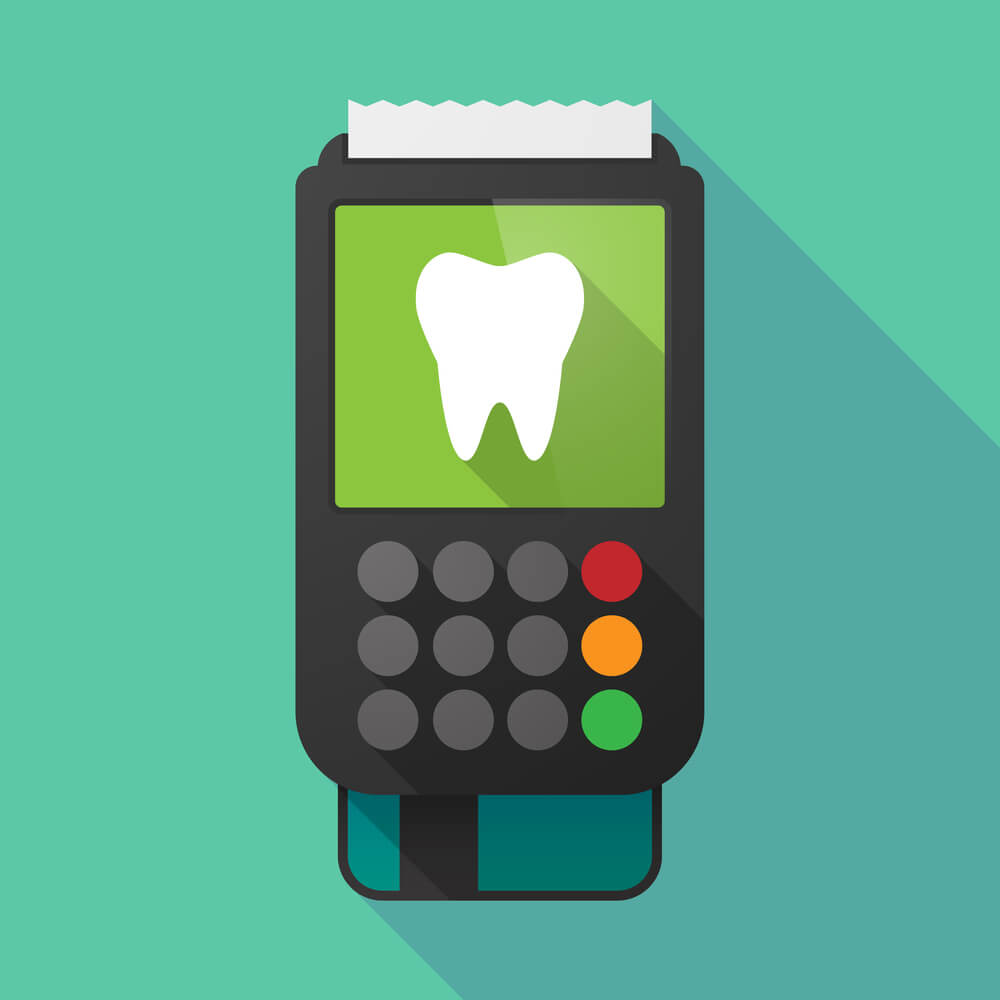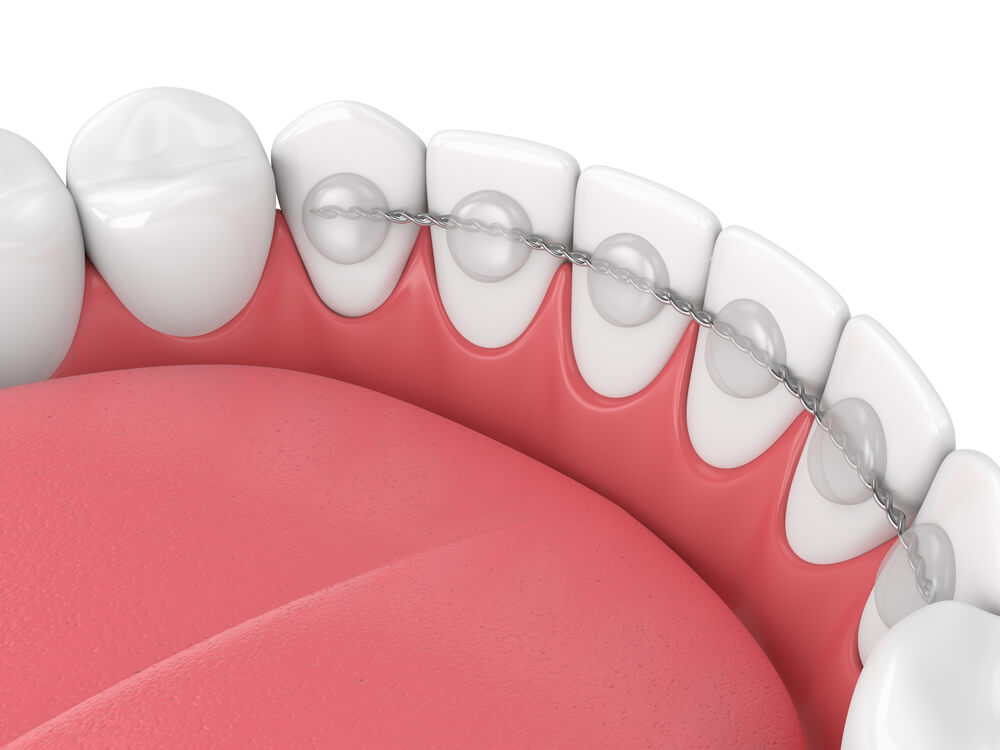You have likely heard that you will need to wear a retainer after your braces treatment is completed. But what is a bonded retainer? Though bonded retainers have the same purpose as regular, removable retainers, there are some key differences. A bonded retainer can be an excellent choice for some patients, while others may benefit more from a removable retainer. Your orthodontist can help you determine what’s best for you.
What Is a Bonded Lingual Retainer?
Just like a regular retainer, a bonded retainer is a type of orthodontic device used to maintain the alignment of teeth after your orthodontist removes your braces.
However, unlike regular removable retainers, a bonded retainer is a thin wire that is permanently attached to the backside of your teeth, typically on the lower front teeth. Bonded retainers therefore stay in place 24/7, offering continuous support to prevent teeth from shifting back to their pre-treatment positions.
Many orthodontists recommend bonded retainers for patients who are at a higher risk of relapse or whose teeth might move after braces.
Bonded retainers are sometimes referred to as bonded lingual retainers because they are placed on the lingual (tongue-facing) side of the teeth. This position makes them virtually invisible.
What Does a Bonded Retainer Do?
A bonded retainer helps prevent teeth from shifting. After your orthodontist removes your braces, your teeth are still capable of moving.
The periodontal ligaments—the connective tissue that holds your teeth in place—require time to settle after orthodontic treatment. Without a retainer, teeth can gradually shift out of place due to natural forces like chewing, tongue pressure or clenching.
The bonded lingual retainer keeps the front teeth stable, preventing them from drifting back into their previous positions. The constant pressure exerted by the retainer holds the teeth in place, providing long-term stability.
How Long Do Bonded Retainers Last?
The amount of time a bonded retainer can last depends on factors such as the materials used and the patient’s oral hygiene habits. Many bonded retainers can last anywhere from five to ten years.
Regular dental check-ups can help ensure your bonded retainer stays in good condition. Over time, the wire might become loose, or the bonding material can weaken. If the retainer breaks or becomes damaged, you should see your orthodontist right away to avoid any unwanted tooth movement.
Maintaining good oral hygiene is another key factor in determining how long a bonded retainer can last. Using floss threaders or interdental brushes can help keep plaque and food particles from accumulating around the wire.
How Much Does a Bonded Retainer Cost?

The cost of a bonded retainer depends on several factors, including your individual situation, the materials used and where you live. Since pricing can vary based on these elements, you should consult with your orthodontist for an accurate estimate.
Some orthodontists may include the cost of the retainer as part of the overall braces package, while others might charge separately. Additional costs can arise if you need repairs, such as rebonding the wire or replacing it altogether. Insurance coverage for retainers also varies, so you should check with your provider to understand how much they will cover.
Are Bonded Retainers Worth It?
When deciding whether a bonded retainer is worth it for you, there are several factors you should consider. These include the long-term effectiveness, convenience and overall cost.
For many patients, the value of a bonded retainer lies in its ability to provide continuous protection without requiring daily removal and reinsertion. Because it’s fixed in place, there’s no chance of forgetting to wear it, unlike with removable retainers.
Another advantage of bonded retainers is their durability. While they may require occasional adjustments, they can last for years without the need for replacement if properly cared for. This can save you money in the long run, as some patients with removable retainers might need to replace them every few years.
For those who value ease of use and long-term stability, bonded retainers may be worth the investment. However, they aren’t ideal for everyone. Some patients might find them uncomfortable. Additionally, because the retainer is bonded to the teeth, it’s more difficult to clean around, which could pose a challenge for those who struggle with oral hygiene.
Do People With Braces Have To Wear a Retainer Forever?
Patients considering bonded retainers often ask, “Do people with braces have to wear a retainer forever?” It’s true that you will always need some form of retention to prevent unwanted tooth movement. However, a bonded retainer might make this lifelong commitment easier for some, since it requires minimal daily thought.
How Do You Care for a Bonded Retainer?
Since a bonded retainer is fixed, you can’t remove it to clean your teeth as you would with a removable retainer. This means you’ll need to pay special attention to cleaning around the wire and the areas where it’s bonded to your teeth.
Though flossing can be tricky with a bonded retainer, you need to floss regularly to prevent plaque buildup and gum disease. You can use special floss threaders or interdental brushes to get between your teeth and under the retainer wire. Your orthodontist can also recommend specific cleaning tools to make the process easier.
You should also visit your dentist and orthodontist regularly to check the condition of your bonded retainer. Your dentist or orthodontist will inspect the wire and the bonding material to make sure everything is still intact. If they notice any damage, they can fix the retainer before it causes your teeth to shift.
We Can Help You Decide About a Bonded Retainer
At Peterson Family Orthodontics, our friendly and experienced team is committed to helping you achieve the smile of your dreams and maintain that show-stopping smile for life. Proper use of a removable or bonded retainer can help you protect your smile after your braces treatment. If you have any questions about orthodontic treatment, contact us for a free consultation. We’re here to help you every step of the way.

